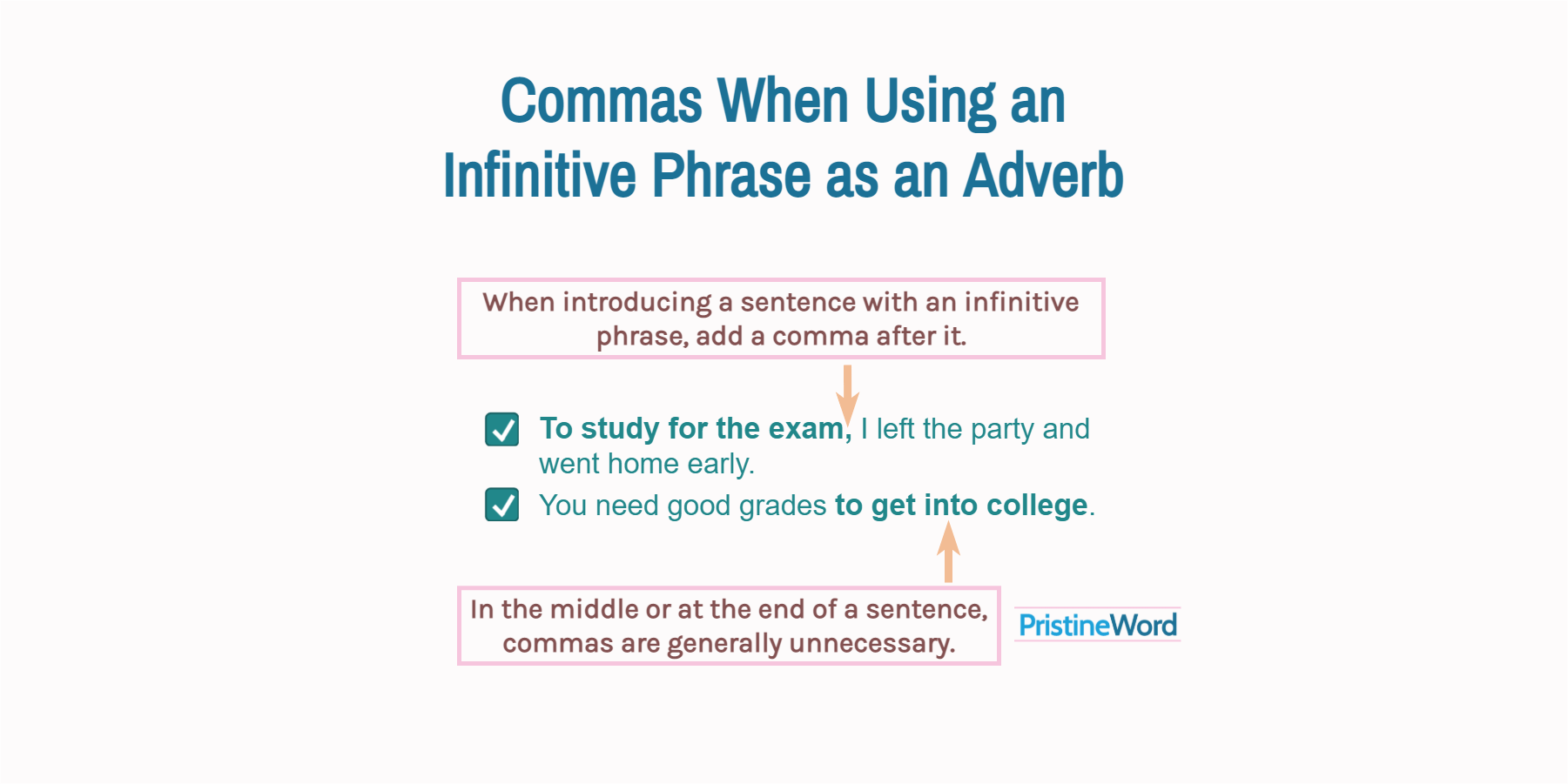When introducing a sentence with an infinitive phrase, add a comma after it. In the middle or at the end of a sentence, commas are generally unnecessary.
When introducing a sentence with an adverbial infinitive phrase, add a comma after it.
To study for the exam, I left the party and went home early.
To study for the exam I left the party and went home early.
It is possible to drop the comma if the introductory phrase is clear and short (no more than three or four words).
To learn Spanish you need to be consistent.
In the middle or at the end of a sentence, commas are generally unnecessary.
You need good grades to get into college.
Contents
1. Infinitive Phrases as Adverbs
A phrase is a group of words functioning as a meaningful unit within a clause. Phrases do not contain a subject and a verb. Adverbial phrases describe where, when, why, how, or to what extent something happens.
She went to her room to meditate after a stressful day.
The structure "to + verb" (e.g., to sing, to run, to play, etc.) can be used to introduce an adverbial infinitive phrase.
John went outside to get fresh air.
Note that the infinitive phrase ("to get fresh air" in the example above) modifies the verb to tell us why the subject took the action.
An infinitive phrase can also modify an adjective ("sad" in the sentence below).
We were sad to see her go.
2. When to Add a Comma at the Start of a Sentence
When starting a sentence with an infinitive phrase that works as an adverb, use a comma after it.
To relax after a hectic day, I enjoy soaking in a warm bath.
The comma is optional if the adverbial infinitive phrase is clear, brief (no more than three or four words), and does not require a pause.
To learn Chinese use flashcards and make Chinese friends. (no more than four words)
But add a comma after an adverbial infinitive phrase:
- to avoid confusion
- when using a series of phrases
- if a dependent clause follows the introductory phrase
To exercise, without going to the gym, you can dance at home. (a series of phrases)
To enjoy my life, because I love travelling, I give myself permission to visit foreign countries for pleasure. (dependent clause follows the introductory phrase)
3. In the Middle or at the End of a Sentence
We do not typically add commas when using an adverbial infinitive phrase in the middle or at the end of a sentence.
I went to Thailand to explore its beautiful beaches.
I was happy to see her succeed because she is my best friend.
But commas are required in particular situations, specifically, when:
- adding nonessential information
- interrupting the sentence flow
- using a series of phrases
- clarifying the meaning of complex sentences
She studied for ten hours, to ace the exam, and went to bed. (adding nonessential information, interrupting the sentence flow, and clarifying the meaning of the sentence)
I went to Madrid to improve my Spanish, meet some friends, and visit the Almudena Cathedral. (using a series of phrases)

